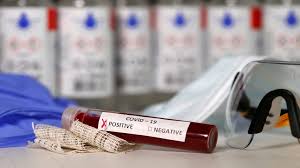Researchers at the University of Illinois are developing the prototype of a rapid Covid-19 molecular test and a simple-to-use, portable instrument that can be used for reading the results with a smartphone in 30 minutes.This could enable point-of-care diagnosis without needing to send samples to a lab, as per the university’s official release.
“The results could be sent back to the appropriate public health system for coordination,” he added.
Bashir co-led the study with electrical and computer engineering professor Brian Cunningham and mechanical science and engineering professor Bill King.Bashir and the team stated in their study that typical tests for SARS-CoV-2, take a sample from a patient with a long nasopharyngeal swab, put that swab into a substance called viral transport media, and send it to a lab for a multi step process of extracting, isolating and multiplying the telltale RNA inside the virus.
This RNA multiplication process, called RT-PCR, requires several temperature fluctuation cycles, specialized equipment, and trained personnel.As reported in the Proceedings of the National Academy of Sciences, the Illinois team used a simpler process to analyse the viral transport media, called LAMP, which bypasses the RNA extraction and purification steps.
“LAMP only needs one temperature – 65°C – so it is much easier to control,” said graduate student Anurup Ganguli, the first author of the study.“Also, LAMP works more robustly than PCR, especially when there are contaminants in the test sample. We can just briefly heat the sample, break open the virus, and detect the genetic sequence that specifically identifies SARS-CoV-2,” Ganguly added.
The researchers compared the LAMP assay with PCR, first using synthetic nasal fluid spiked with the virus and then with clinical samples. They found the results were in agreement with PCR results, and they documented the sensitivity and specificity of the LAMP test.
The micro fluidic cartridge can be inserted into a portable device that also has a cradle for a smartphone, so the phone’s camera can read the test results.The team is currently working with Fast Radius Inc., a Chicago-based technology company, to manufacture the micro fluidic cartridges.
The researchers demonstrated the portable device with additional clinical samples and found the results matched those of the standard PCR lab procedure.The researchers are now exploring whether the assay would work with saliva samples to eliminate the need for nasopharyngeal swabs, and collecting more patient data as they consider the next steps for regulatory approvals, Bashir said.




